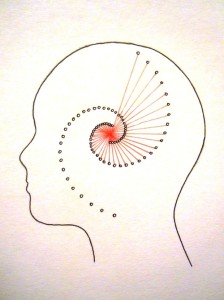One of the joys that has come from seeing my book published, has been the widening of contacts. One of the people who read my book and got in touch was Richard Martin. Richard is Head of Knowledge Management at RSSB, and has recently launched a terrific blog ‘In The Flow’ – I’d urge you to follow him.
He’s kindly agreed to do a guest blog for me:
 “Learning is a lifelong work that fuels our creativity and innovation. As David Price observes in Open, it is not something that should be ‘done to us’ but ‘done by us’. Learning should not be about listening passively to a sage on a stage, allowing them to fill our minds with facts in preparation for examinations that will serve no further purpose in our lives. Learning ought to be participatory, collaborative and fun. It should feed our intellectual curiosity. It must be about both theory and application, learning by doing, unconstrained by location and technology.
“Learning is a lifelong work that fuels our creativity and innovation. As David Price observes in Open, it is not something that should be ‘done to us’ but ‘done by us’. Learning should not be about listening passively to a sage on a stage, allowing them to fill our minds with facts in preparation for examinations that will serve no further purpose in our lives. Learning ought to be participatory, collaborative and fun. It should feed our intellectual curiosity. It must be about both theory and application, learning by doing, unconstrained by location and technology.
Price’s book explores new and emerging approaches to learning, work and collaboration. He highlights the fact that even in the 21st century industrial approaches to education and work still prevail in many of our institutions. The alternative that both he and Ken Robinson (in Out of Our Minds and a series of TED Talks) advocate is a more organic, social approach. One that is participatory, focused on outcomes, informed by collaboration and a reliance on knowledge and expertise that resides in the network rather than the building.
Insightful commentators like Euan Semple (in Organizations Don’t Tweet, People Do and on the podcast Shift), Philip Weiss (in HyperThinking) and Jane Hart (in The Workplace Learning Revolution) point to the importance of technology in freeing education and learning from a specific time and place. In a TEDx Talk Donald Clark picks up this theme and argues that ‘pedagogic change is not coming from academic institutions, or education departments within academic institutions, or teachers, pedagogic change is coming from technology.‘ He points to the important role played by the likes of Tim Berners-Lee, Open Source developers, and the founders of Google, Wikipedia, Apple, Amazon, Facebook, YouTube and Twitter. This is learning enabled by technology rather than led by it.
Clark also highlights the work of Salman Khan of the Khan Academy. He has flipped the classroom: in his view children should not be given difficult problems as homework, they should be doing the exposition at home (i.e. researching and gaining an understanding of the theory). Teachers in the classroom should be giving the students formative feedback; they should be mentoring and engaging, not standing at the front of the room and talking at students.
As a parent frustrated by the UK educational system, stuck as it is in the Edwardian era of conveyor-belt production, I recognise this need to nurture curiosity, foster creativity and experimentation, and open our children’s minds. They need to be better equipped for the modern world of employment, where collaboration, knowledge-sharing, project-based work, decision-making and agility are increasingly important. They need to learn to connect the dots, adapting to the domain of what Ken Perlman has termed the knowledgeable networker.
‘Knowledgeable networkers are very good at what they do, and at the same time, do not pretend to know it all. They consider the entire puzzle, not just their own area of expertise. They’re integrative thinkers with broad interests and connections. They see how puzzle pieces fit together without needing to know everything about each piece – instead, they know a lot of people and have a lot of information sources. They have instant access to multiple knowledge workers via a phone call, email, Twitter post, or LinkedIn InMail. They can bring experts and expertise into a team, a department, or organization to fulfil a specific need or help seize an opportunity.’
Such people demonstrate effective communication, engagement and influencing skills. They are able to motivate others, inspiring them to share knowledge and experience to mutual benefit. They are less interested in process than in outcome. By this I mean that to be at their most effective they need to be given the space and flexibility to deliver their work how they see fit. They do not want their personal creativity inhibited by procedure, process and policy. They feed their own thirst for knowledge and continuous learning by engaging with others and sharing. Through their work and collaboration they are both educators and educated.
As Harold Jarche once observed, ‘work is learning and learning is the work.’”
—-
[Picture credit: Carol]

Hi,
I have never been a real believer in setting homework unless it is for revision purposes, as I have found that kids with learning disabilities will not complete homework tasks. I have found that parents who have similar or the same learning abilities are unable to assist the students at home, the theory of school finishes at 3pm is what is instilled into the kids. The value in education extends from influences outside the school environment, makes it difficult if society doesn’t see the value in education.